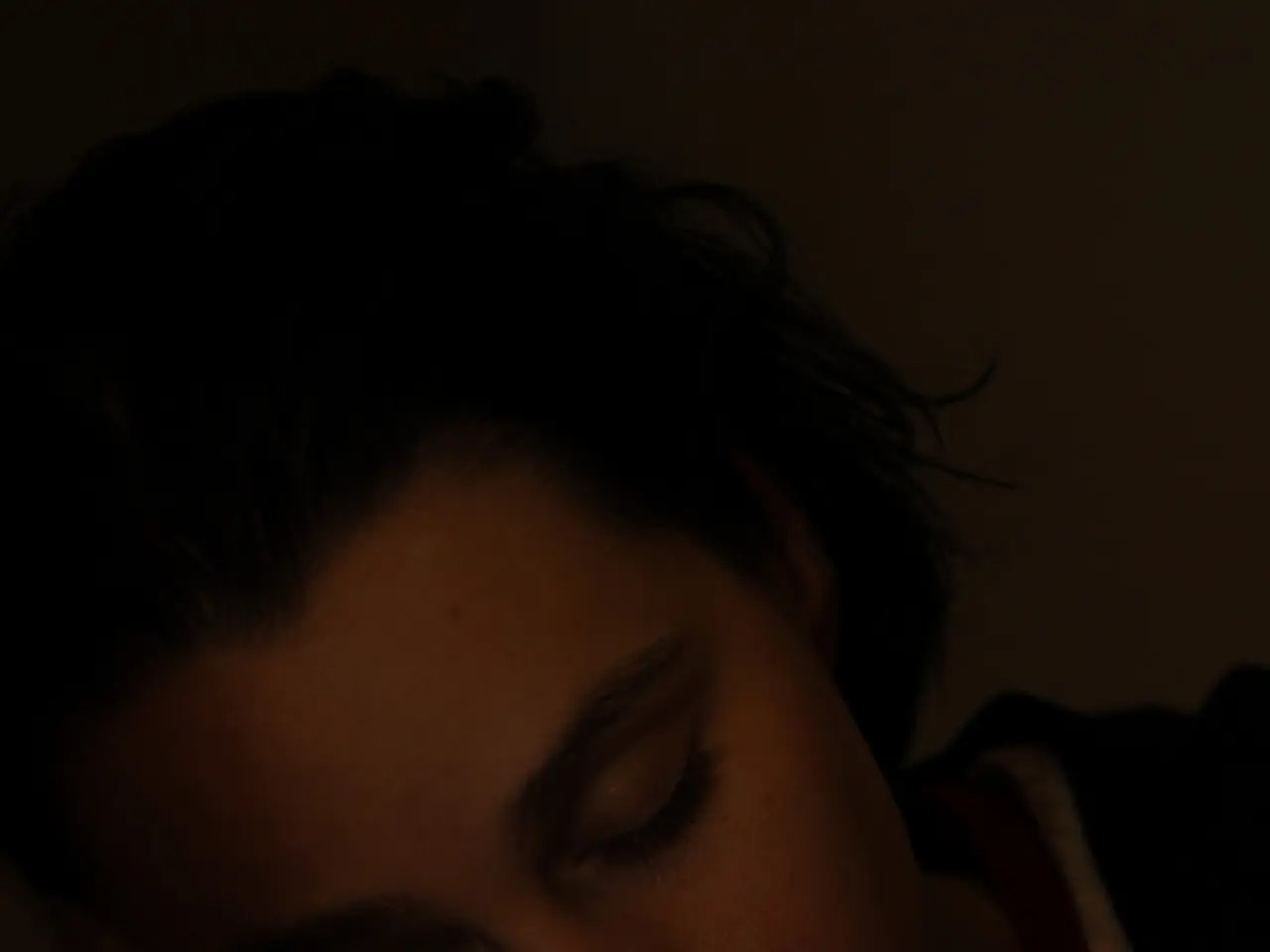Unveiling the Reasons Behind Tough Mornings: Insights from Brain Scans
The study published in Current Biology has uncovered intriguing differences in brain activity patterns during the transition from sleep to wakefulness, particularly between REM (rapid eye movement) and non-REM sleep stages.
During non-REM sleep, especially deep sleep, neurons connecting arousal centers to the cortex exhibit a pattern called "bistability," alternating between active and silent states. When waking from non-REM sleep, the brain first shows a brief surge of slow, sleep-like waves before transitioning into faster, wake-related brain activity. This slow-wave phase before full wakefulness is linked to a feeling of grogginess or sleep inertia.
In contrast, during REM sleep, the brain lacks this bistable pattern. The transition from REM to wakefulness involves an immediate rise to fast, wake-like activity, skipping the slow wave phase seen in non-REM awakenings. Consequently, the brain is more acutely alert immediately upon waking from REM sleep, although people tend to feel subjectively sleepier when awoken from REM.
Francesca Siclari, the study's senior author and neuroscientist at the Netherlands Institute for Neuroscience, commented on the results to Nature. The study tracked the brain activity of 20 individuals as they woke up from sleep, with more than 1,000 awakenings recorded in total. Each participant had 256 sensors attached to their scalps for second-to-second brain activity tracking.
These findings could potentially help researchers understand why some people struggle to wake up feeling refreshed. Understanding these brain activity patterns can shed light on sleep disorders, particularly those involving incomplete awakenings or hyperarousal (excessive brain activity preventing restful sleep). For example, identifying when slow waves versus wake-promoting signals predominate may help in diagnosing or treating conditions like insomnia or disorders with impaired arousal pathways.
The study did not specifically address the impact of setting off an alarm on feelings of tiredness upon waking. More work is needed to determine if other sleep issues, such as movement, play a role. The study also did not investigate the long-term effects of the observed differences in neural activity upon waking or the potential causes of these differences.
The study's findings could aid in comparing normal awakenings to abnormal ones, as less subjective measures of wakefulness could help refine the study's results. Francesca Siclari, the study's senior author, stated that understanding normal awakening brain activity could provide better comparison to abnormal ones. The study did not find a significant correlation between a multi-step nighttime routine, early bedtime, or a no-device rule and feeling great upon waking.
In summary, the distinct brain activity dynamics on waking from REM versus non-REM sleep stages highlight why waking up can feel different depending on the sleep stage, and provide important insights into sleep disorders and the physiological basis of post-sleep tiredness. These findings open pathways for better understanding and potentially improving the quality of awakening and sleep health.
- Gizmodo could report on the study published in Current Biology, which reveals intriguing differences in brain activity patterns during the transition from sleep to wakefulness.
- The research on brain activity during wakefulness, led by Francesca Siclari, could be part of a health-and-wellness lifestyle feature focusing on science and technology.
- Understanding the brain activity patterns uncovered in this study could contribute to the development of future technology designed for sleep health, such as smart alarms that promote refreshing awakenings.
- This study's findings underscore the importance of sleep health and emphasize the role of sleep science in uncovering the mysteries of human health and wellness.




